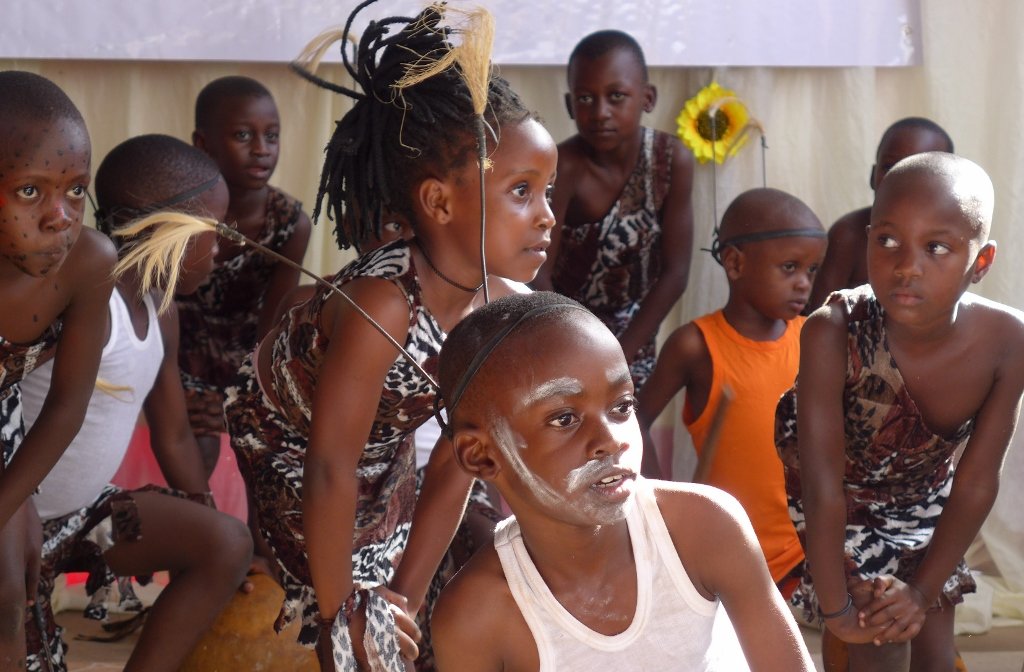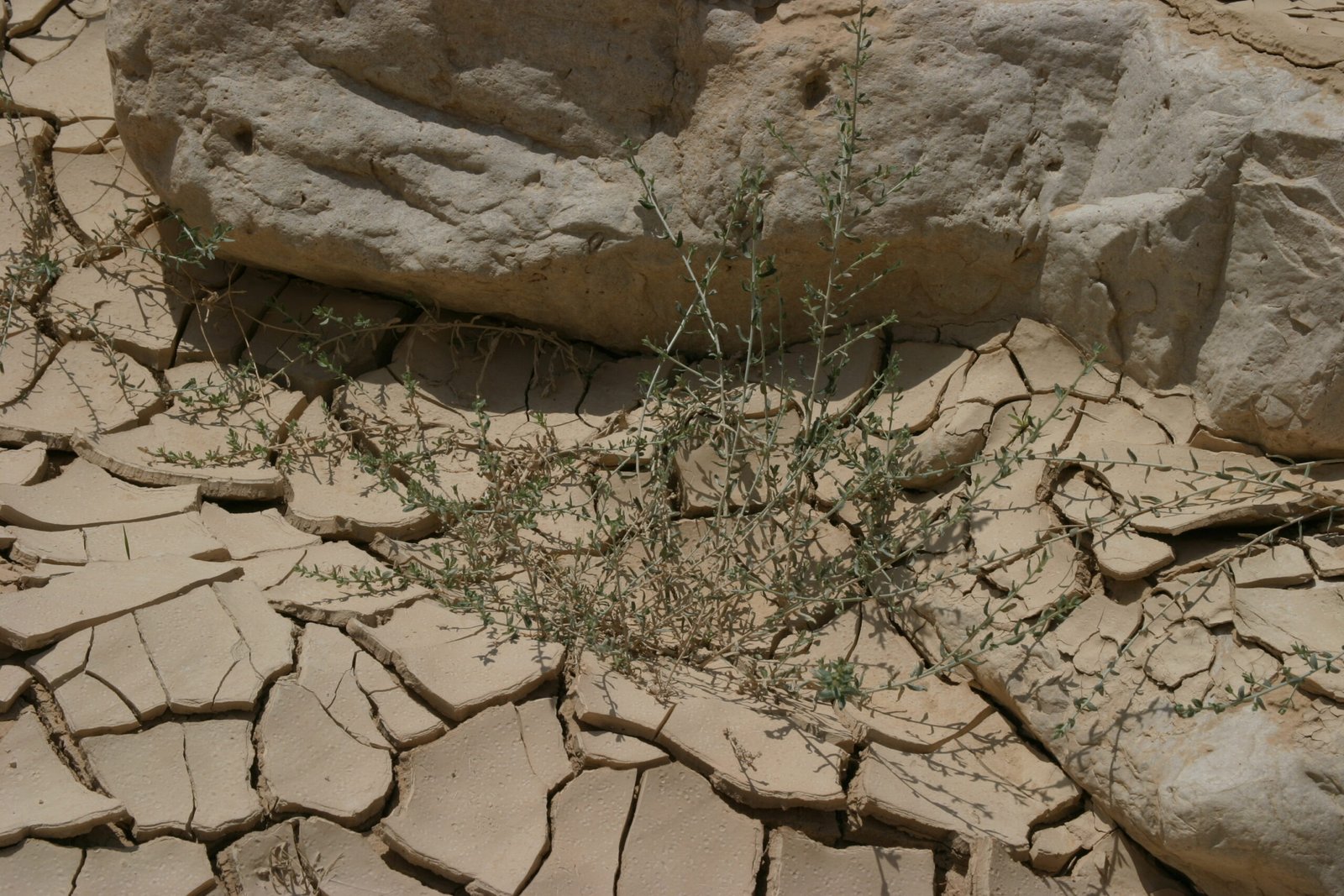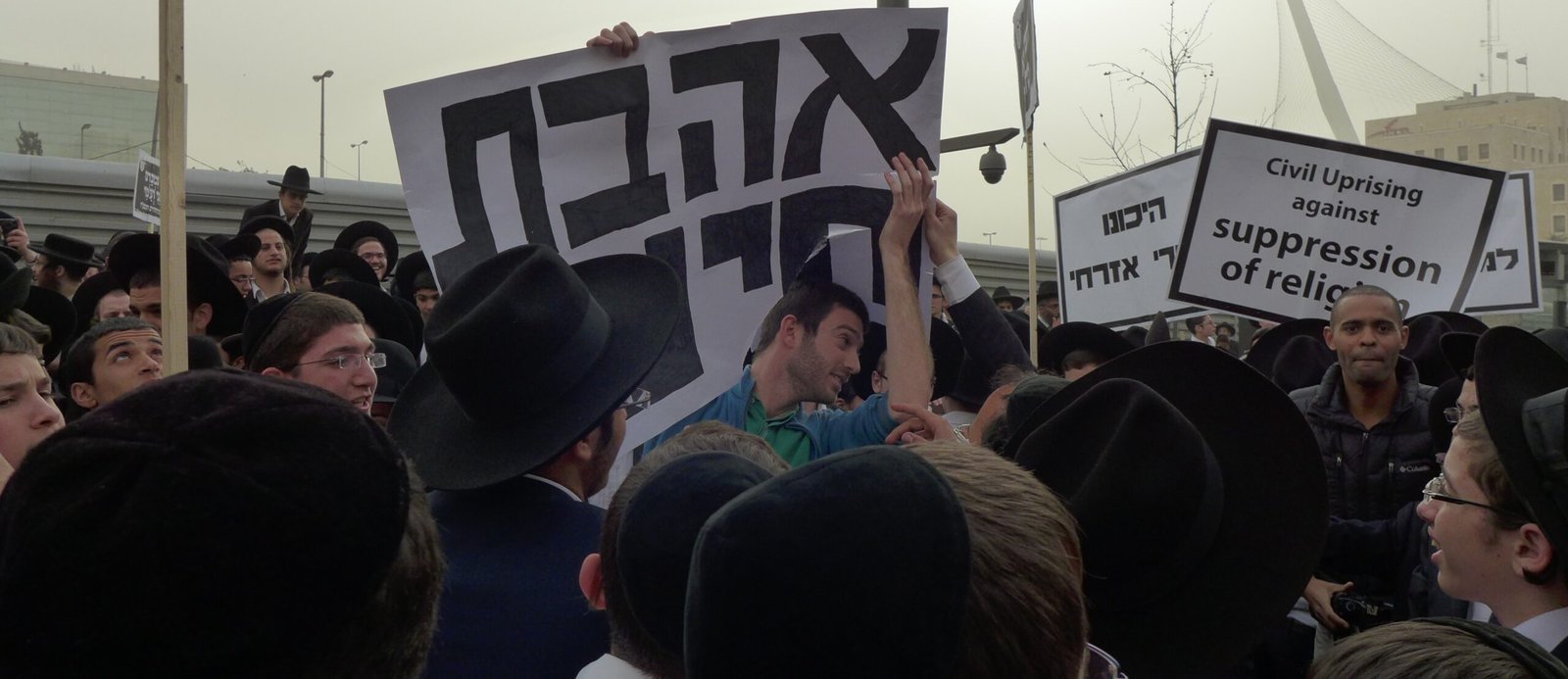Share This Story, Choose Your Platform!
Praying Psalm 87 the prophet foresaw in the future: When it comes to the Lord’s beloved Zion, even world powers like Egypt and Babylon want to be included in God’s plan as “confidants” (verse 4a).
But this is true not only for these two political and cultural poles of tension, between which Israel found itself caught up for thousands of years, but for all Gentile nations who are in touch with the chosen people, near and far (verse 4b): “Look, Peleshet and Tzor, with Cush.”
“Peleshet” are the Philistines, the immediate neighbors, and often even “roommates” of the chosen people in the promised land of Israel. They had immigrated to the land of Canaan at about the same time as the Israelites. They had primarily settled the coastal plain in the south-west of the country.[1]
Ambivalence
“Peleshet” is characterized by a love-hate relationship with the people of Israel. The two neighbors never succeeded to separate by clearly defined borders. Their relationship was marked by the tension between the necessity of living together and constant competition, the struggle for supremacy and jealousy.[2]
“Tzor” is the Hebrew name for Tyre, the legendary Phoenician trading center, a few kilometers north of the Israeli border on the eastern edge of the Mediterranean.[3] In ancient times, the name “Tyre” was a synonym for pomp, cosmopolitanism, culture, enlightenment, humanism, an overwhelming military power at sea, but also for arrogance.[4] From the perspective of Israel, Tyre was the gateway to the Phoenician sphere of influence, which encompassed the entire Mediterranean region.
King Hiram of Tyre had a close friendship with the Israelite King David and his son Solomon. With building materials and skilled workers, he supported the construction of palaces and then especially the temple in Jerusalem.[5]
Fruitful cooperation
In the 9th and 10th centuries BCE, there were close political and economic ties between Jerusalem and Tyre. At the time of Solomon they were regulated by a state treaty (1 Kings 5:26b).
Joint expeditions to distant countries made it possible to import legendary luxury goods.[6] Up to the time when the second temple in Jerusalem was built under Ezra, there was close cooperation between the Jewish people and Phoenicia.[7]
A problem
At the time of Nehemiah, however, the Tyrians became a challenge for the chosen people because they offered them “fish and all kinds of goods” for sale on Shabbat(!) (Nehemiah 13:16) – which ultimately brought “wrath upon Israel” (verse 18).
Psalm 83 mentions “Peleshet and the inhabitants of Tzor” (verse 7) among those who made a covenant against Israel (verse 6). They had agreed to destroy Israel as a nation “so that the name of Israel may no longer be remembered” (verse 5).
The prophet Joel[8] mentions “Tyre and Sidon” next to “all areas of Peleshet” paradigmatically for those Gentile nations, with whom the Lord is litigating because they have violated the people and land of God.
The Gentiles from the north
At the time of Judas Maccabeus, “the Gentiles from Tyre” are mentioned alongside those “from Ptolemais – today’s Acre – Sidon and all of Galilee”. They too had come together “to exterminate the Israelites” (1 Maccabees 5:15). The Scriptures devote several chapters to the threats and descriptions of the judgment that God ordained upon Tyre.[9]
“Cush” dominated Black Africa, the country on the Upper Nile. Transferred to today’s map, these are not only the countries of Sudan and Ethiopia, but also the East African countries around Lake Victoria: Kenya, Uganda, Rwanda, Burundi and Tanzania. The official source of the White Nile pours from the northern end of Lake Victoria near Jinja, east of Kampala in Uganda. From there the longest river in the world eventually flows into the Mediterranean.
The population of “Cush” has a black skin color (Jeremiah 13:23), is “tall, smooth, strong, terrible”.[10] This country is mentioned in the Bible as part of the Garden of Eden. Already there, Cush was associated with “streams of water”[11] and stood for the extreme southern border of civilized Egypt.[12]
One of Noah’s grandsons was named “Cush”[13]. Moses had a “Cushite wife” and therefore had problems with his siblings Miriam and Aaron (Numbers 12:1). The Bible mentions several people who lived among the people of Israel and were called “Cush” or referred to as “Cushi”.[14] In today’s Israel, the term “Cushi” has roughly the same associations and racist connotations as the German “Neger” or the English “nigger”.
Aid from East Africa
In the Bible, “Cush” sends fast messengers across the sea with light ships (Isaiah 18:2). It is known for its extensive trade (Isaiah 45:14) and its precious stones[15], but also for its military might[16]. In the course of history, the land of Israel repeatedly faced the risk of being torn between the powers of Mesopotamia on the one hand and Egypt and Cush on the other.[17]
During the time period of the Kings, Judah sought support from Egypt and Cush against the Assyrian threat from the north (Isaiah 20:5-6). Later, Cush is mentioned among those countries to whom the Jewish people had been dispersed and from where God must redeem his people (Isaiah 11:11). Again and again, up to the apocalyptic last days, Cush appears as part of an anti-Israelite coalition that threatens the people of God.[18]
Therefore the God of Israel proclaims judgment on the land south of Egypt.[19] But – as with “Rahav”, “Bavel”, “Peleshet” and “Tzor” – the objective of God’s judgments on “Cush” are not execution, but to raise up and to align those who are being judged, not the destruction of the country, but its re-directing so that they will bring gifts to the Lord to “the place of the Lord’s name, to Mount Zion”.[20]
Worshipers from the “black continent”
The Bible foresees that Africans will acknowledge Israel’s special role and worship her God (Isaiah 45:14). “Cush shall hasten to stretch out her hands to God”, the ESV renders Psalm 68:31: “O kingdoms of the earth, sing to God; sing praises to the Lord!”
It is true for all these Gentile neighbors of Israel, may they be closer or more distant: “This one was born there” (Psalm 87:4c).
Above all doubt is visible: “This one” – may he or she be an Egyptian, Babylonian, Philistine, Phoenician or Black African – was born “there”, “at a distance”, that is, in their respective countries. They are “strangers”, “foreigners”, not natives, not a chosen people, not “Israel”.
“This one” who “was born there” carries the “smell”, the whole atmosphere of the pagan, religious-superstitious self-will, the rebellion against the Creator that characterizes the world of the nations. The difference between Israel and the Gentile peoples is obvious and cannot be denied.
The Midrash Tehilim,[21] however, to which Radak[22] referred, provides an interpretation by Rabbi Yehuda Bar Shimon, who emphasized in his explanation this passage: “In the future the Gentile nations of the world will bring gifts to the King Messiah.”
Future for East Africa
Anyone who is familiar with the traditions of the New Testament when hearing these words will instinctively see the “wise men from the east.” From far away – perhaps from India or at least from Mesopotamia – they had followed a star. Then in Bethlehem they fell to their knees, delighted. They worshiped the newborn king of the Jews and presented their treasures to him: gold, frankincense and myrrh (Matthew 2:1-12).
After the Lord’s resurrection and ascension to heaven, a high-ranking politician from “Cush” was the first to request to be baptized (Acts 8:26-40).
If now, at the beginning of the 21st century, Asians and Africans visit the Holy Land in huge tour groups this text gains a peculiar, breathtaking topicality. Millennia of anti-Jewish Christian history and the theology associated with it are unknown to these people who were born “there”. They read the Bible with a wonderfully naive immediacy. With great curiosity they recognize the hand of the living God in current events concerning the modern state of Israel.
[1] אברהם אבן-שושן (עורך), קונקורדנציה חדשה לתורה נביאים וכתובים (ירושלים: הוצאת “קרית-ספר” בע”ם, מהדורה רביעית תשמ”ב/1982), 946.
Compare Judges 3:3; Joshua 13:3; 1 Samuel 6:16-17.
[2] A detailed treatise on the term “Peleshet” may be found in my book “Then Palestinians. Myths and Martyrs” (Trostberg, Germany: Azar GdR, 2016) on pages 333-374 under the heading “Last, but not least: What does the Bible say about the Palestinian Issue?”
[3] Joshua 19:29; 2 Samuel 24:7; Biblical literature often mentions it in the same breath as Sidon, 36 km further north: 1 Kings 5:20; Isaiah 23; Jeremiah 25:22; 27:3; 47:4; Joel 4:4; 1 Maccabees 5:15; Matthew 11:21-22; 15:21; Mark 3:8; 7:31; Luke 6:17; 10:13-14; Acts 12:20.
[4] See Joshua 19:29,35; 2 Samuel 24:7; Isaiah 23; Ezekiel 26-28; Hosea 9:13; Amos 1:10; Zechariah 9:2-3; 2 Maccabees 4:18; Acts 21:3.
[5] 2 Samuel 5:11-12; 1 Kings 5:15ss; 1 Chronicles 14:1; 22:4; 2 Chronicles 2:2,10ss; compare further 1 Kings 7:13-14,40,45; 9:11ss; 2 Chronicles 4:11,16.
[6] 1 Kings 9:27; 10:11,22; 2 Chronicles 8:18; 9:10,21.
[7] Psalm 45:13; Ezra 3:7.
[8] Joel 4:4; compare also Zechariah 9:2-4.
[9] Isaiah 23; Jeremiah 25:22; 27:3; 47:4; Ezekiel 26; 27; 28; 29:18,20; Joel 4:4; Amos 1:9-10; Zechariah 9:2ss.
[10] Isaiah 18:2,7; compare Isaiah 45:14.
[11] Genesis 2:13; compare also Isaiah 18:1-2,7.
[12] Ezekiel 29:10; 2 Chronicles 21:16; Esther 1:1; 8:9; Judith 1:9.
[13] Genesis 10:6,7; 1 Chronicles 1:8,9.
[14] 2 Samuel 18:21-23,31-32; 2 Chronicles 14:8; Psalm 7:1; Jeremiah 36:14; Zephaniah 1:1.
[15] Job 28:19; Daniel 11:43.
[16] Ezekiel 38:5; Nahum 3:9.
[17] 2 Kings 19:9; Isaiah 20; 37:9; Jeremiah 46:9; Nahum 3:9.
[18] 2 Chronicles 12:3; 14:8-14; 16:8; Ezekiel 38:5.
[19] Isaiah 18; 20; Ezekiel 30; Zephaniah 2:12.
[20] Isaiah 18:7; compare Zephaniah 3:10 and then of course Isaiah 2:1-5 and Micah 4:1-5.
[21] The term ‘midrash’ (מדרש) is derived from the Hebrew root ‘darash’ (דרש), which means ‘to seek,’ ‘to ask.’ So, ‘midrash’ is literally ‘research,’ ‘study,’ ‘interpretation,’ ‘teaching,’ but is used here as a comprehensive term for rabbinic interpretation, which was passed on orally in the ancient world, later in written form. As a literary genre, the ‘midrashim’ as an interpretation follow the biblical text, whereas the ‘talmud’ deals with substantive issues and is ordered accordingly. “Midrash Tehilim” is the interpretation of the Book of Psalms.
[22] Rabbi David Ben Yosef Kimchi (1160-1235), the so-called “Radak”, was the first among the great exegetes and grammarians of the Hebrew language. He was born in Narbonne, southern France. His father died early, so David was brought up by his brother Moshe Kimchi. Radak permitted philosophical studies only to those whose faith in God and the fear of heaven were firmly established. Publicly he dealt with Christians and attacked primarily their allegorical interpretation of Scripture and the theological claim to be the “true Israel”.






















